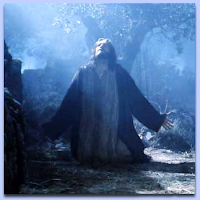She shared a link to a blogpost, 7 Things Every Christian Should Know About Politics, along with the statement that she both loves Jesus and is a Democrat and how those two things are not mutually exclusive. Now, I am most definitely not saying that they are; BUT I do believe that it's morally wrong to vote for a candidate who works to keep abortion legal in the U.S. and/or export it to other countries. Also, my stomach turns when I read a political platform that includes working to keep abortion legal. I do not belong to either of the two main political parties in the United States, but it is clear to me the way I need to vote. Sorry for the tirade. Let me get back to that blogpost, 7 Things. The points, in and of themselves, are quite good (although I disagreed with one or two of the author's explanatory comments). Here they are:
1. Democrats go to church too.
2. Political talk radio and cable "news" only want ratings.
3. Those who argue over politics don't love their country more than others.
4. Thinking your party's platform is unflawed is a mistake.
5. Scripture tells us to pray for our governing leaders (2 Tim.2:1-4) and to respect those in authority (Rom.13:1-7).
6. Don't be paranoid.
7. When you promise to leave the country if your party loses, follow through. (People will respect you.)
See, nothing there for a Catholic-Christian to be upset by. But then the gentleman added a bonus point, with commentary:
8. Stop saying, “This is the most important election in the history of our nation.” It’s not. The most important election in the history of our nation was when Abraham Lincoln was elected President. Before that, we thought it was okay to own people.
I bet you know what my mind went to. At the risk of offending my friend, I had to comment below her FB link to the blog article:
I think he was doing fairly well until he threw in the bonus with #8. By bringing up the election of Lincoln and the subsequent reversal of the Supreme Court's decision in Dred Scott v. Sandford he brings to mind the parallel decision in Roe v. Wade and the 53 million Americans since then who were denied their fundamental right to life. With a president's power to appoint members of the Court, every election since that time is extremely important - as are Congressional elections. I don't belong to either party, but my vote must go to the candidates and party that will bring us closer to overturning legal abortion - just as if I lived at the time of Lincoln's election my love for Jesus would have bound me, despite every other issue at stake in that election, to cast my vote for the candidate and party moving toward freeing people of African descent from slavery (their recognition as human beings with fundamental rights). There is room for legitimate disagreement among Christians regarding political policies and budgets, etc.; but the lives of a million children a year is not one of them. Until that fundamental issue is resolved, there does seem to be a very clear choice between party platforms.
Will it bear good fruit? Please ask the Lord that it does.

















